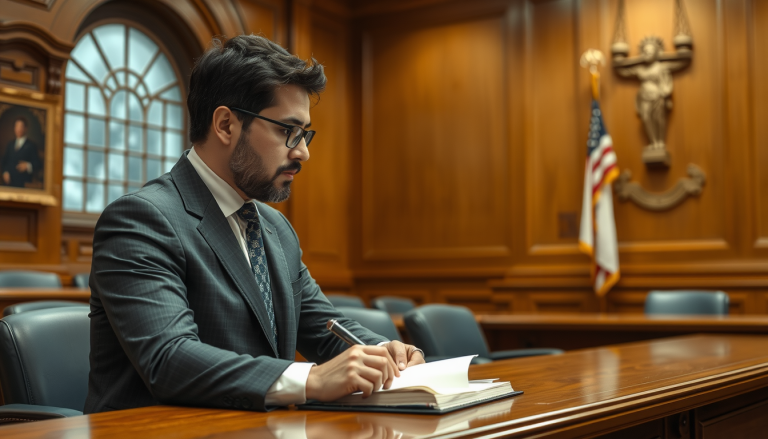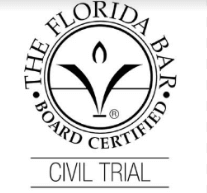
The Role of Expert Witnesses in Medical Malpractice Lawsuits
Table of Contents
At Kogan & DiSalvo Personal Injury Lawyers, we understand that medical malpractice lawsuits are among the most complex and emotionally charged cases in personal injury law. When healthcare providers fail to meet the accepted standard of care, patients can suffer devastating injuries, prolonged suffering, or even wrongful death. Proving medical malpractice requires a meticulous approach, and one of the most critical components of these cases is the testimony of expert witnesses. In this blog post, we explore the pivotal role expert witnesses play in medical malpractice lawsuits, delving into their qualifications, how they establish standard of care violations, and why their testimony is indispensable in securing justice for victims in Florida.
What Are Expert Witnesses in Medical Malpractice Lawsuits?
An expert witness is a professional with specialized knowledge, skills, education, training, or experience in a specific field relevant to a legal case. In medical malpractice lawsuits, expert witnesses are typically medical professionals—such as doctors, surgeons, nurses, or specialists—who provide objective, evidence-based opinions to help the court understand complex medical issues. Unlike lay witnesses, who testify about facts they observed, expert witnesses offer opinions on matters requiring technical expertise, such as whether a healthcare provider’s actions deviated from the standard of care.
In Florida, medical malpractice cases are governed by strict statutes, including Florida Statute 766.102, which mandates that plaintiffs provide expert testimony to establish that a healthcare provider breached the prevailing professional standard of care. This standard is defined as the level of care, skill, and treatment that a reasonably prudent healthcare provider in the same or similar specialty would provide under similar circumstances. Expert witnesses bridge the gap between complex medical concepts and the legal framework, helping judges and juries determine whether negligence occurred.
Qualifications of Expert Witnesses in Florida
Not just any medical professional can serve as an expert witness in a medical malpractice lawsuit. Florida law imposes stringent requirements to ensure that expert witnesses are qualified to provide credible and reliable testimony. According to Florida Statute 766.102(5), an expert witness testifying about the standard of care in a medical malpractice case must meet the following criteria:
- Specialization: The expert must specialize in the same or a similar specialty as the defendant healthcare provider. For example, if a neurosurgeon is accused of malpractice, the expert witness should be a neurosurgeon or a physician with comparable expertise in neurological care.
- Active Practice or Teaching: The expert must have been actively engaged in clinical practice or teaching in their specialty within the five years preceding the alleged malpractice. This ensures the expert’s knowledge is current and relevant.
- Board Certification: If the defendant is board-certified in a specialty, the expert witness must also be board-certified in that specialty or have equivalent qualifications.
- Experience with Similar Procedures: The expert must have experience with the specific medical procedure or treatment at issue in the case, enabling them to evaluate whether the defendant’s actions were appropriate.
Additionally, Florida Statute 766.102(6) allows experts who are not in the same specialty to testify if they have sufficient training or experience to provide an informed opinion, but this is subject to judicial discretion. For example, a general surgeon might testify in a case involving a laparoscopic procedure if they have extensive experience with similar surgeries.
Courts also evaluate an expert’s overall credibility, considering factors like their education (e.g., medical degrees from accredited institutions), professional certifications, publications in peer-reviewed journals, and prior experience testifying in court. At Kogan & DiSalvo, our medical malpractice attorneys carefully select expert witnesses whose qualifications withstand scrutiny, ensuring their testimony strengthens your case.
The Importance of Expert Witnesses in Medical Malpractice Cases
Expert witnesses are indispensable in medical malpractice lawsuits for several reasons. Their testimony serves as the cornerstone of proving negligence, causation, and damages, which are the three essential elements of a successful claim. Below, we explore why expert witnesses are so critical.
Establishing the Standard of Care
The standard of care is the benchmark against which a healthcare provider’s actions are judged. It represents what a competent professional in the same field would have done under similar circumstances. Because medical practices are highly technical, laypeople—such as jurors or judges—often lack the knowledge to determine whether a provider’s actions were reasonable. Expert witnesses provide clarity by explaining the standard of care applicable to the case.
For example, in a case involving a misdiagnosed heart attack, a cardiologist expert might testify that the standard of care required the emergency room physician to order an electrocardiogram (ECG) and cardiac enzyme tests based on the patient’s symptoms. If the physician failed to order these tests, the expert would explain how this omission deviated from accepted practices, constituting a breach of the standard of care.
Proving Breach of the Standard of Care
Once the standard of care is established, the expert witness must demonstrate how the defendant’s actions (or inactions) fell below this standard. This involves a detailed analysis of medical records, diagnostic tests, treatment plans, and other evidence. The expert compares the defendant’s conduct to what a reasonably prudent provider would have done, highlighting specific errors or omissions.
For instance, in a surgical malpractice case, an expert witness might review operative reports and imaging studies to show that a surgeon nicked a patient’s artery during a procedure, causing severe bleeding. The expert would testify that a competent surgeon, following the standard of care, would have used specific techniques to avoid such an error, proving the breach.
Demonstrating Causation
Proving a breach of the standard of care is not enough; plaintiffs must also show that the breach directly caused their injuries. This is often the most challenging aspect of a medical malpractice case, as defendants may argue that the patient’s injuries resulted from pre-existing conditions or other factors. Expert witnesses use their medical expertise to establish a clear link between the provider’s negligence and the harm suffered.
For example, in a birth injury case, a pediatric neurologist might testify that a delay in performing a cesarean section led to oxygen deprivation, causing the infant’s cerebral palsy. The expert would rely on medical records, fetal monitoring strips, and scientific literature to show that timely intervention would have prevented the injury, solidifying the causation element.
Assessing Damages
Expert witnesses also help quantify the damages suffered by the plaintiff, which may include medical expenses, lost wages, pain and suffering, and future care costs. Medical experts can testify about the severity of the injuries, the need for ongoing treatment, and the impact on the patient’s quality of life. In cases of permanent disability, experts like rehabilitation specialists or life care planners may provide detailed projections of future medical and financial needs.
For example, in a case involving a spinal cord injury caused by malpractice, a neurosurgeon might testify about the patient’s prognosis, while a vocational expert could explain how the injury prevents the patient from returning to their previous occupation, justifying compensation for lost earning capacity.
Countering Defense Experts
In medical malpractice lawsuits, defendants often hire their own expert witnesses to dispute the plaintiff’s claims. These defense experts may argue that the provider met the standard of care or that the injuries were unavoidable. Plaintiff’s expert witnesses play a critical role in countering these arguments, presenting compelling, evidence-based opinions to persuade the court. At Kogan & DiSalvo, we select experts with impeccable credentials and courtroom experience to ensure their testimony stands up to rigorous cross-examination.
How Expert Witnesses Are Utilized in Medical Malpractice Lawsuits
Expert witnesses are involved at multiple stages of a medical malpractice lawsuit, from pre-litigation to trial. Their contributions are essential to building a strong case and achieving a favorable outcome. Below, we outline the key ways expert testimony is utilized.
Pre-Suit Requirements in Florida
Florida law requires plaintiffs to comply with pre-suit requirements before filing a medical malpractice lawsuit. Under Florida Statute 766.203, plaintiffs must submit a verified written medical expert opinion from a qualified expert witness confirming that there is a reasonable basis to believe the defendant committed medical negligence. This opinion must specify how the provider breached the standard of care and how the breach caused the plaintiff’s injuries. Our attorneys work closely with expert witnesses to prepare these affidavits, ensuring compliance with Florida’s strict requirements.
Case Evaluation and Strategy
Before filing a lawsuit, expert witnesses help attorneys evaluate the merits of a case. They review medical records, diagnostic images, and other evidence to determine whether negligence occurred and whether the case is likely to succeed. Their insights guide our legal strategy, helping us identify key issues, anticipate defense arguments, and estimate potential damages. For example, an anesthesiologist expert might identify improper sedation as the cause of a patient’s brain injury, shaping the focus of the lawsuit.
Depositions and Discovery
During the discovery phase, expert witnesses may be deposed by the opposing side, answering questions under oath about their opinions and qualifications. They also assist in preparing interrogatories and reviewing the defendant’s expert reports. Our attorneys collaborate with experts to ensure their testimony is clear, consistent, and supported by scientific evidence, minimizing vulnerabilities during depositions.
Trial Testimony
At trial, expert witnesses present their findings to the judge or jury, explaining complex medical concepts in an accessible manner. They use visual aids, such as diagrams or imaging studies, to illustrate their points and respond to cross-examination by defense attorneys. Their ability to communicate effectively and withstand scrutiny is critical to persuading the court. For example, in a case involving a delayed cancer diagnosis, an oncologist might use pathology reports to show that earlier intervention would have improved the patient’s prognosis, reinforcing the plaintiff’s claim.
Settlement Negotiations
Expert testimony also plays a role in settlement negotiations. A strong expert opinion can pressure defendants and their insurers to offer a fair settlement to avoid a costly trial. Our attorneys leverage expert reports to demonstrate the strength of your case, increasing the likelihood of a favorable resolution.
Types of Expert Witnesses in Medical Malpractice Cases
Medical malpractice cases often require testimony from multiple types of expert witnesses, depending on the nature of the claim. Common types include:
- Medical Specialists: Physicians in fields like cardiology, orthopedics, or obstetrics testify about the standard of care and breaches specific to their specialty.
- Nurses: Registered nurses or nurse practitioners provide insight into nursing standards, such as medication administration or patient monitoring.
- Pharmacists: Pharmacists testify about medication errors, such as incorrect dosages or drug interactions.
- Radiologists: Radiologists evaluate diagnostic imaging to identify misinterpretations or missed findings.
- Life Care Planners: These experts project the cost of future medical care for patients with permanent injuries.
- Economists: Economists calculate financial losses, such as lost wages or earning capacity.
- Mental Health Experts: Psychologists or psychiatrists assess emotional and psychological damages, like post-traumatic stress disorder.
At Kogan & DiSalvo, we maintain a network of highly qualified expert witnesses across various disciplines, ensuring we have the right professionals to support your case.
Challenges Involving Expert Witnesses
While expert witnesses are critical, their involvement can present challenges. Defense attorneys may attempt to disqualify an expert by questioning their qualifications or impartiality. For example, they might argue that an expert lacks recent clinical experience or is biased due to frequent plaintiff testimony. Courts rigorously evaluate these challenges under Florida’s Daubert standard (Florida Statute 90.702), which requires that expert testimony be based on reliable principles and methods.
Another challenge is the cost of hiring expert witnesses, as their fees for case review, depositions, and trial testimony can be substantial. However, at Kogan & DiSalvo, we cover these costs upfront, working on a contingency fee basis, meaning you pay nothing unless we win your case.
Why Choose Kogan & DiSalvo for Your Medical Malpractice Case?
At Kogan & DiSalvo, our medical malpractice attorneys have been handling complex cases since 1994, and we understand the critical role expert witnesses play in securing justice. We meticulously select board-certified experts with impeccable credentials, ensuring their testimony is compelling and defensible. Our team collaborates closely with these professionals to build a robust case, from pre-suit affidavits to trial testimony. We handle all aspects of your claim, including navigating Florida’s stringent medical malpractice laws, so you can focus on healing.
If you or a loved one has been harmed by medical negligence anywhere in Florida, don’t wait to seek justice. Contact Kogan & DiSalvo Personal Injury Lawyers today at (954) 733-6300 or online for a free, no-obligation consultation. We’ll review your case, consult with top-tier expert witnesses, and fight tirelessly to secure the compensation you deserve. With no fees unless we win, you have nothing to lose by taking the first step toward justice.
 (561) 375-9500
(561) 375-9500

 Call
Call





